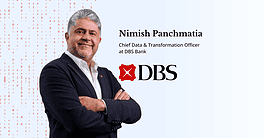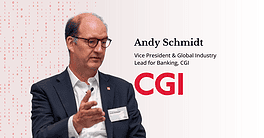How are MENA banks looking to get ahead of the innovation curve? Global Finance’s Dubai Conference explored new ways to thrive in the digital age.
For the second year in a row, Global Finance held its Digital Banking and Innovation Conference in the United Arab Emirates. The September gathering brought together industry leaders who are already shaping the future of banking. Over 200 figures attended, including bank executives, fintech entrepreneurs, corporate leaders and investors. Their experiences offer a unique outlook on the challenges and opportunities ahead.
“This is a reflection of the exciting digital developments that are delivering real benefits to both businesses and consumers in the Middle East,” Joseph Giarraputo, publisher and editorial director of Global Finance, noted in his introductory speech.
The challenges addressed by the panelists were wide-ranging: What technologies are customers ready for? Where are the gaps in the market? Who make good partners, and why? How can banks leverage data? What are the specific opportunities fintech offers Islamic finance institutions? Are regulators adapting fast enough?
Compared with the rest of the world, the Middle East is still slow in adapting to digital change. In 2018, investments in fintech amounted to $39.6 billion worldwide; the Middle East’s share was only $15 million. Conventional banks still dominate in the region’s financial sector; no fintech has truly managed to challenge their position.
A late start might not be a disadvantage, however. “The region is a late adopter, but that’s an advantage because we don’t have to reinvent the wheel,” says Abdulla Almoayed, CEO of Almoayed Technologies, an investment and digital infrastructure provider based in Bahrain.
“This is a great opportunity for startups to move forward because the market focus is on them,” said Raja Al-Mazrouei, executive vice president of Dubai-based accelerator DIFC FinTech Hive, in her keynote speech.
The region’s main stakeholders realize that stepping into the digital world is the only way to remain relevant, most panelists agreed. “I see willingness from regulators and banks who see tech as an opportunity,” says David Godfrey, director of Strategic Solutions Consulting at ACI Worldwide.
Yet, how much banks should transform emerged as a critical issue throughout the panel discussions. On the one hand, tech-savvy clients want digital-only services. But too much technology can exclude customers who don’t know how to use it or don’t want to. “Bank-bashing is easy to do, but is the customer comfortable? Some technologies are not yet properly utilized,” said Ramana Kumar, head of Payments at First Abu Dhabi Bank.
“If you take the UAE, for example, tokenization is there, but the consumer take-up is marginal,” said Sandeep Chouhan, group head of Operations and Technology at Mashreq Bank. “Same for Apple Pay. People haven’t jumped on it yet.”
Likewise for another hot new technology: “Blockchain is still a concept that a lot of people don’t understand,” cautioned Daniel Gould, deputy CEO at Anglo-Gulf Trade Bank, the world’s first digital corporate trade bank.
Digitization of banking services isn’t just about adopting new technologies; finding the right partner or partners is vitally important. While most MENA lenders understand the need to collaborate with outside players, finding the right partners can prove tricky. Startups usually don’t have the capacity to answer all the needs of large and long-established banks.
“We are slow and not very good at innovation; fintechs are good, but they can only do part of what we are looking for,” said Sonny Zulu, managing director of Retail Banking at Standard Chartered UAE.
Another major concern centers around the ability to grow, scale, survive shock and adapt, several lenders agreed. “Everybody wants to be the first. It’s great. But how do you scale up?” said Motasim Iqbal, head of transaction banking at Standard Chartered UAE.
“There are lots of ideas, but not yet a real capacity to industrialize,” Mashreq’s Chouhan agreed. “Banks want to innovate, but a lot of times when we try to scale it up, the fintech falls over.”
One of the main challenges on both sides is timing. “Banks don’t want to work with a fintech that will die in two years. Entrepreneurs need to be at the right stage and find the right moment to approach the client,” said Nihal Abughattas, a founding board member of the MENA Fintech Association.
In the search for the perfect match, banks say they are willing to take on some of the weaknesses and risks inherent to startups in exchange for loyalty and commitment. “You have to accept the disorganized nature of the startup,” says Chouhan. “For banks, it’s a mind shift. But likewise, fintechs need to come in with more than an idea. They need to fall in love with you, [because] they can’t go dancing elsewhere.”
With that in mind, fintechs need to be ready for some tough questions going in. “It’s not just about the hype. What does the fintech bring to the table?” said Eric Modave, COO at Arab Bank, Jordan’s largest regional lender, which set up its own $30 million venture capital fund and fintech accelerator last year. “If we take them by the hand and work together, there is a better chance of succeeding. Give them the chance to expose their ideas, co-create, give them money, and in the end it will pay back.”
Fintech encompasses virtually anything from online banking to crypto-currencies, robots, the cloud and data. Which of these should a particular bank focus on? The conference speakers highlighted some of the best opportunities—and some of banks’ most glaring blind spots. “Data analytics—banks have had it for tens of years and what have they done with it?” said Kumar.
“I log into Amazon, it knows what I like to read, yet my bank still knows nothing about me,” said Abdulla Almoayed, founder and CEO of Bahrain’s Almoayed Technologies.
Data is the fuel of artificial intelligence, panelists seemed to agree. “AI is all about data; the more organized your data is, the more you can benefit from it,” said Roula Moussa, CEO of Al Venture Labs, a UAE-based accelerator. “So my advice is: Get your data sorted.”
As in other parts of the world, artificial intelligence is a controversial topic in MENA countries, due to fears that it will cause unemployment to surge. Not necessarily, panelists said. “The loss of jobs, people being fired, that’s definitely a taboo. But AI can also create jobs,” argued Dimitris Kokosioulis, deputy CEO and head of Group Operations and IT at National Bank of Kuwait.
And it isn’t clear just how far automation can really go. In the MENA region, critical steps in the banking process, such as registering new customers, still can’t be fully digitized—at least for now. “For corporates, SMEs and banks, onboarding is where the danger is,” said Daniel Gould from Anglo-Gulf Trade Bank. “We need a new proposition. We need to look at the client and begin from scratch.”
Wealth management will emerge as the most sought-after sector by fintech companies in 2020, according to results of a live poll of conference attendees. “For us, this is the greatest opportunity,” said Fahad al Bader, CEO of Neo Technologies, a fintech that specializes in the field.
Islamic finance is another segment that banks, investors and entrepreneurs are increasingly exploring. “It is gaining ground,” said Abdulla Al-Tuwaijri deputy CEO of Kuwait’s Boubyan Bank. “A lot of people will choose a shariah-compliant option if there is one.”
Mark Chahwan, co-founder and CEO of Sarwa, a digital investment platform based in Dubai, explained how his company first took a bet on conventional wealth management before adding a halal portfolio option. “We realized there was a gap in the market for a large, emerging, affluent segment that didn’t have access to investing products aligned with their values,” he said.
Fintech has a logical place in this growing field, argued Mohamed Damak, global head of Islamic Finance at S&P Global Ratings. “Technology could disrupt the whole Islamic finance industry, notably by changing the ways sukuks are structured and sold,” he said.
Perhaps the biggest stumbling block to success for fintechs is one that is all too familiar to conventional banks, as well. Although the Middle East shares a common language and offers a regional market of 400 million, the reality is that it is divided between 22 countries and a patchwork of regulatory frameworks. “We are governed by regulations where we operate, and that’s a challenge to scale,” said Almoayed.
Indeed, laws and regulations are the biggest roadblock to growth faced by MENA’s fintech companies, audience and speakers agreed. “Bringing everybody on board is the biggest challenge,” said Krishnakumar Duraiswawmy, head of Trade Finance at Abu Dhabi Commercial Bank.
“We need to agree, as an ecosystem, on common benchmarks and on where we want to go,” added Abughattas.



